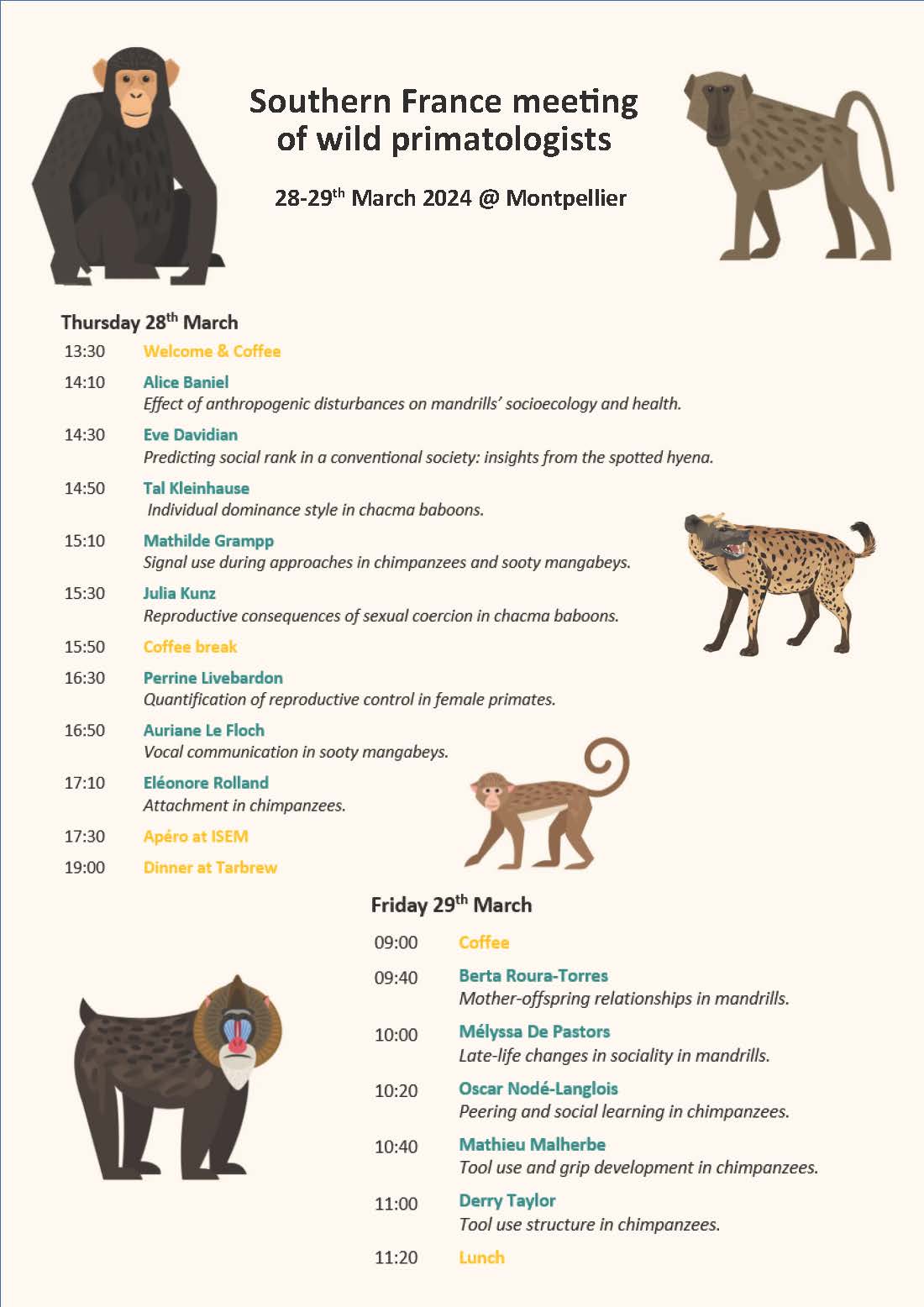ISEM Monday Seminar - Michel Raymond
Université Montpellier Campus Triolet ISEM Salle Louis Thaler Bât 22 1st floor Place Eugène Bataillon, Montpellier, Languedoc Roussillon, FranceTitle and summary to come
Title and summary to come
"Orangutan life cycle: slow but sure" Among our closest extant relatives, the life of orangutans remains the least documented and understood, mainly due to their solitary lifestyle. Based on a 15-year study of Bornean orangutans (Pongo pygmaeus wurmbii), our research aims to [...]
The expensive brain and the evolution of brain size Vertebrate brains vary considerably in size, and this variation is often attributed to differing cognitive demands. Here, we ask whether the unusually high costs of brains have acted as constraints on the evolution of brain size. We confirm that [...]
The expensive brain and the evolution of brain size Vertebrate brains vary considerably in size, and this variation is often attributed to differing cognitive demands. Here, we ask whether the unusually high costs of brains have acted as constraints on the evolution of brain size. We confirm that [...]
Frontiers in Social Evolution Seminar
In animal societies, control over resources and reproduction is often biased towards one sex. Such power asymmetries between the sexes largely shape male-female sexual and social relationships. In particular, males often coerce females in reproductive contexts, but also in other contexts. Yet, the ecological and evolutionary underpinnings of male-female power asymmetries remain poorly understood. In [...]
Our species' long childhood is hypothesized to have evolved as a period for learning complex foraging skills. Researchers have focused on assessing this hypothesis, yet studies present inconsistent conclusions regarding the connection between niche complexity, the development of foraging skill development, and ecological knowledge . I will present three studies addressing this hypothesis using both cross cultural [...]

Guest on "CQFD", a program dedicated to all the sciences and their ethical, political, economic and societal issues. Inverview about Lucy Cooke's book: "Bitch. The power of females in the animal world".
Risk perception - or an individual's susceptibility to perceive a threat (e.g. disease, predator, competitor) - has shaped the physiology, cognition, behavior and ecology of animals for millions of years. While a lot of research has focused on lethal threats (i.e. predation), only recently have we increased our understanding of how animals, and more particularly [...]

Conflicts over the modality of reproduction strongly shape the relationship between males and females. Yet their implications outside the reproductive context remains poorly understood. Building on a recent theoretical framework for intersexual power dynamics in mammals, I will illustrate the link between asymmetries in reproductive control and social inequalities between the sexes. I will specifically [...]

The European Human Behaviour and Evolution Association (EHBEA) brings together international researchers from the evolutionary sciences and humanities who are interested in the physiological and behavioural adaptations of the human species. The evolutionary approach, which takes account of natural selection processes and evolutionary trade-offs, has opened up many new avenues for [...].